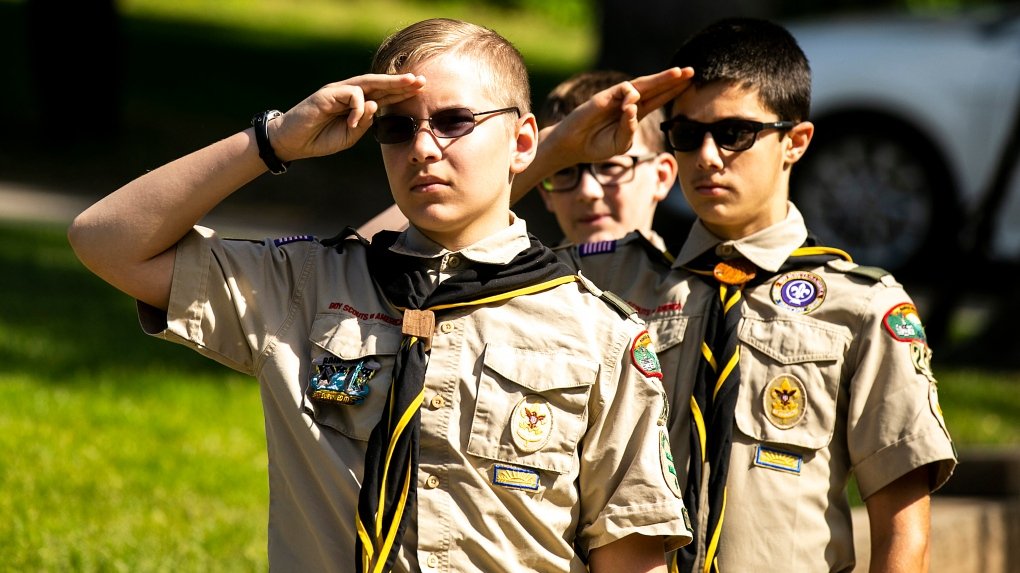Scouting is an exciting and meaningful activity that provides young people with opportunities to grow, learn, and make a positive impact on their communities. Whether through outdoor adventures, community service, or developing leadership skills, scouting offers something for everyone. It’s not just about camping and earning badges; it’s about developing confidence, teamwork, and lifelong skills. In this guide, we’ll dive into what scouting is, the key values it promotes, the different types of scouting, and how you can get involved.
What is Scouting?
Scouting is a worldwide movement that aims to help young people build character, develop leadership skills, and become active, responsible citizens. The movement was founded in the early 20th century by Robert Baden-Powell in the UK, with the idea of teaching boys how to be self-reliant, brave, and helpful. Over time, scouting expanded and adapted to include both boys and girls, with many different scouting organizations around the world.
At its core, scouting is about learning through experience. Scouts participate in a variety of outdoor activities like camping, hiking, and survival skills, but they also engage in service projects, leadership training, and teamwork exercises. Scouting isn’t just about adventure; it’s about personal growth and giving back to the community.
Different scouting groups may vary slightly in structure and focus, but the overall goal is always the same: to help young people grow into responsible, capable, and compassionate individuals.
The Core Values of Scouting
Scouting is built on a foundation of core values that help shape the character of its participants. These values are what make scouting unique and contribute to its long-lasting impact. The primary values include duty to God, country, and others, as well as personal responsibility.
One of the main values emphasized in scouting is integrity. Scouts are encouraged to be honest, trustworthy, and do their best in everything they do. Another key principle is loyalty, both to their fellow scouts and the community. This loyalty translates into teamwork, where scouts support and rely on each other.
Respect is another critical value, encouraging scouts to show consideration for others, as well as the environment. Courage is also promoted, especially when facing new challenges, and kindness, as scouts are taught to help others and serve their communities. These values are not just abstract ideas; they are incorporated into daily activities and challenges to make sure they’re practiced in real life.
Through these values, scouts learn how to live their lives with purpose and to positively contribute to society.
Different Types of Scouting
Scouting is not a one-size-fits-all experience. There are several types of scouting, each catering to different age groups and interests. The most common types include Boy Scouts, Girl Scouts, and Explorer Scouts.
Boy Scouts: Historically, Boy Scouts have focused on outdoor activities, such as hiking, camping, and building leadership skills. The organization is available to boys of various age groups, typically ranging from 11 to 18 years old. While the original Boy Scouts movement began with a focus on male youth, many organizations now have similar programs available for girls as well.
Girl Scouts: While many people associate scouting with boys, Girl Scouts have been an essential part of the movement for years. This group emphasizes the empowerment of girls, leadership skills, and service to others. In addition to outdoor activities, Girl Scouts also focus on community engagement and advocacy.
Explorer Scouts: This is an extension of the scouting program for older teens, usually between the ages of 14 and 20. It focuses on career development, community service, and leadership roles, providing young people with real-world skills.
No matter the type, each scouting program shares the same basic principles but caters to different age groups and interests.
Key Skills Learned Through Scouting
One of the best parts about scouting is the wide range of skills it teaches. From practical outdoor skills to life lessons in teamwork and leadership, scouts leave the program with valuable abilities that will serve them well throughout life.
Survival Skills: Scouting teaches essential survival skills, such as building a shelter, starting a fire, and navigating through the wilderness. These hands-on lessons give scouts confidence and prepare them for unexpected situations.
First Aid and Safety: Scouts are trained in basic first aid, learning how to handle minor injuries, treat burns, and administer CPR if necessary. These life-saving skills are invaluable and can be used both in and outside of scouting activities.
Teamwork and Leadership: Through team exercises and leadership positions, scouts learn how to work well with others and take on responsibility. Whether it’s leading a group on a hike or planning a community service project, these experiences help scouts build strong leadership qualities.
Environmental Awareness: Scouting also emphasizes the importance of protecting the environment. Scouts learn to appreciate nature and are often involved in conservation efforts, teaching them to be responsible stewards of the earth.
These skills, among others, help scouts grow into well-rounded, capable individuals.
The Role of Scouting in Personal Development
Scouting plays a significant role in personal development by helping young people build self-confidence, develop leadership qualities, and become active members of their communities.
Building Confidence: Through activities such as public speaking, group challenges, and personal achievement, scouts gradually build self-esteem. Completing a difficult task or earning a badge provides a sense of accomplishment, which boosts confidence.
Leadership Skills: Scouts are given many opportunities to lead their peers, whether it’s as a patrol leader on a camping trip or organizing a community service event. These leadership experiences teach responsibility, decision-making, and how to inspire others.
Community Service: Scouting encourages young people to give back to their communities. Whether through environmental clean-ups, volunteering at local shelters, or helping out during a disaster, scouting teaches the importance of service and the impact it can have on the world.
The personal growth that comes from scouting is invaluable, helping scouts develop into individuals who are not only capable but also compassionate.
How to Get Involved in Scouting
Getting involved in scouting is simple and accessible. Whether you’re a parent looking to get your child involved, or an individual seeking to join as a young person, the process is straightforward.
Step 1: Research Local Groups: Start by looking for scouting organizations in your area. Most communities have local scouting groups that meet regularly. Check online or ask at community centers for information on how to connect with a nearby troop or group.
Step 2: Sign Up: Once you’ve found a group, you can sign up for membership. Some organizations require a fee, while others may offer scholarships or free participation for certain individuals.
Step 3: Participate: After joining, you’ll begin attending meetings, outdoor trips, and events. Scouting is all about hands-on learning, so be prepared to jump in and start participating right away.
Step 4: Set Goals and Achievements: Scouts work towards earning badges, leadership positions, and completing community service projects. Set goals for what you want to achieve, and track your progress.
Getting involved in scouting opens up many doors for personal growth, adventure, and making lasting friendships.
The Future of Scouting
Scouting continues to evolve to meet the needs of today’s young people. While the core values of scouting remain the same, the activities and focus areas have expanded to reflect the changing world.
In recent years, scouting has embraced technology and digital tools, creating virtual meetings, online badge programs, and even digital learning modules. This makes it easier for scouts to stay engaged, even when they can’t meet in person.
Scouting is also more inclusive than ever before, with both boys and girls participating in many scouting programs around the world. The movement has adapted to ensure that all young people have the opportunity to learn, grow, and contribute to their communities, regardless of gender, background, or location.
The future of scouting will continue to be shaped by innovation and the changing needs of society, but the fundamental goal of developing responsible, capable young leaders will always remain the same.
Conclusion
Scouting is much more than just an outdoor adventure. It’s a comprehensive program that helps young people develop valuable life skills, grow as leaders, and make a positive impact on their communities. Whether through learning survival techniques, developing teamwork, or performing community service, scouting provides opportunities for personal development that last a lifetime.



